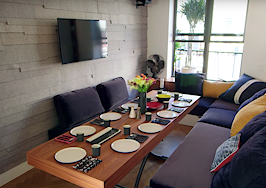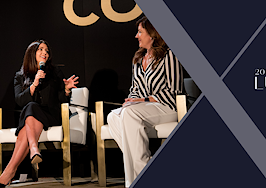This summer we’re looking at the state of the luxury agent and broker in today’s increasingly complex real estate market. In October, we’ll gather in Beverly Hills at Luxury Connect to share best practices, network and create blueprint for the luxury agent/broker of tomorrow. Don’t miss it.
It’s official: We are at the start of a new era. An era where residential real estate across the world must contend with rising interest rates and greater, but even with these headwinds the global luxury property market continues to be a sought-after asset class.
This new era comes at a time when the global residential luxury market began to shift. It started in 2016 when China’s economy started to slow down and the U.S. economy starting to pick up. This shift meant that luxury property buyers, sellers and the agents who specialize in luxury real estate have to pay even more attention to this shifting global marketplace.
To anticipate where luxury markets are headed in 2018 and beyond, we first need to understand the factors impacting residential luxury real estate.
Greater regulation
One of the biggest factors is how real estate, as an asset, is becoming a global commodity — with multiple stakeholders looking to examine each part of each transaction. The result has been greater regulation.
Whether it’s the introduction of new or higher taxes — particularly tax that targets foreign buyers — or tighter mortgage regulations, the overall impact of greater regulation is to slow down the transfer of property from seller to buyer.
For instance, when the British Columbian government introduced a foreign buyers’ tax in August 2016, this prompted a temporary halt to sales activity in one of Canada’s hottest luxury markets.
Sales eventually picked back up again, six months later, after the market was satisfied that the new tax wouldn’t seriously impede potential luxury real estate buyers.
The same impact was felt in Hong Kong earlier that year when the Chinese government began to crack down on money leaving the Mainland.
The overall result of this greater regulation is that brokerages and agents involved in this space will need to become better acquainted with the rules and policies being implemented by various governments in various jurisdictions.
Follow the money
Another significant influence on activity within the global luxury market is the growth of wealth over the past few decades.
An example of this can be seen right in North America. According to a 2017 report by commercial global real estate agency, Knight Frank, there are now 4,110 ultra-high-net-worth-income-earners (UHNWI) in Canada — people with a net worth of $30 million USD or more. This is a 15 percent year-over-year spike.
In Canada, the biggest increase for this sharp increase in the number of UHNW is immigration. Millionaire migrants are attracted to Canada’s political and economic stability with Vancouver, B.C., taking the top spot, and Toronto taking the No. 5.
Following the money, we can see that North America isn’t the only attractive spot for wealthy immigrants. Other top spots for the wealthy to settle include Colombo, Sri Lanka; Ho Chi Minh, Vietnam; and Hyderabad, India.
These three locations help round out the top five spots worldwide, while Melbourne, and Sydney, Australia; and Shanghai, China; followed by Mumbai, India; and Dubai, United Arab Emirates; help close out the top 10 list.
Follow the trends
Turns out, luxury residential buyers don’t just settle in a city because there are high-priced properties. While scenery and property is a big factor, so is access to lifestyle.
“Lifestyle isn’t just the home. It’s everything. It’s restaurants, it’s clothing and it’s services,” explains Craig Patterson, editor-in-chief for Retail Insider, who was speaking about the transformation that’s happening in Montreal, Canada right now. He adds that Montreal (and other Canadian cities) are well positioned for an increase in luxury retail.
“Its cold climate makes [the country] well positioned as a destination-based mall hub,” Patterson explains. It’s why Montreal has seen an uptick in potential luxury flagships like the ones more commonly seen in Toronto, Vancouver and Calgary, where luxury brands, such as Louis Vuitton, Hermes, Chanel and Dior, have already set up shop.
The ability to create complete live-work-play lifestyle destinations is key to luxury retail developers. For brokerages and agents who work in luxury residential real estate, it would be wise to monitor commercial space to determine where and when the next hot-spots will happen.
But even as you monitor trends in the global luxury real estate, it’s best to update your buyer profiles.
Shifting buyer profiles
There was a time when anyone involved with luxury real estate would identify the buyer profile using two words: baby boomer.
Those days are gone.
Now, luxury real estate buyers (and sellers) are well-connected millennials, successful tech-start-up Gen X entrepreneurs and, of course, the boomer segment.
When segmented by generation some notable differences start to emerge, when it comes to luxury-buying. To appreciate how each of these buyer segments will tackle the decision to purchase luxury real estate it’s important for agents and brokerages to learn how each segment operates.
This is where aggregation of global data can help. According to analysis from Deloitte:
- Millennials (those born between 1981 and 2001) constitute 47 percent of the luxury buying market:
- Are more likely to be less trusting, while preferring to have all relevant information before making any decision. This is because millennials are far more self-directed when it comes to purchasing decisions. They prefer to buy for themselves rather than to impress others.
- But this doesn’t mean they aren’t influenced by trends. In fact, millennials are three times more likely to be influenced by trends than any other generation.
- Keep in mind, millennial buyers are more likely to take their time when it comes to the buying decision and prefer to work with people who have similar strengths to their own.
- On the whole, millennials enjoy the planning part of the purchase decision but are less comfortable with conflict.
- Gen Xers (those born between 1965 and 1980) constitute 28 percent of the luxury-buying market:
- Tend to really place importance on work-life balance. As a result, this generation is most influenced by the mod-cons offered by luxury real estate, rather than the history or prestige offered by this asset-class.
- This generation also thrives on flexibility, which is why they continue to embrace online access as their primary method of shopping and researching when it comes to purchasing decisions.
- Boomers (those born between 1943 and 1964) constitute 25 percent of the luxury-buying market:
- Although few will disagree that agents and brokerages need to cultivate their relationships with Gen X and millennial luxury consumers, this doesn’t mean ignoring the traditional boomer market. That’s because baby boomers are still the generation with the biggest bucks to spend and that makes them a strong force in the luxury residential real estate market.
- The key to attracting these clients is to create inclusive environments where they feel included and part of the dialogue.
- This personalization is key, particularly in a digital world. Rather than focus on bombarding the boomer buyer with information, focus on the experience.
- To get their attention, focus on creating engaging, shareable experiences that appeal to their desire for one-of-a-kind social statements.
Understanding the generational differences between each luxury buyer segment is a powerful first step for agents and brokerages focused on the luxury real estate market. Then, there are regional differences.
For instance, Chinese luxury buyers much prefer an “in-store” experience rather than an online experience. This doesn’t mean that digital marketing strategies are not integral to this buying segment, but rather the focus needs to be on the ease of access to this luxury asset through online facilitation.
That’s because Chinese luxury buyers like to shop online but then browse “in-store” or “in-person” to “experience the touch and feel of luxury goods,” explains Patrizia Arienti, EMEA Fashion & Luxury Leader for Deloitte Touche Tohmatsu Limited.
The key takeaway for all luxury property agents is that this new era in luxury property is no longer about status. Now, that luxury property purchase is all about the experience.
This summer we’re looking at the state of the luxury agent and broker in today’s increasingly complex real estate market. In October, we’ll gather in Beverly Hills at Luxury Connect to share best practices, network and create blueprint for the luxury agent/broker of tomorrow. Don’t miss it.
Romana King is an award-winning personal finance writer, a real estate expert and speaker. Romana is the current Director of Content for Zolo Realty, one of Canada’s leading online real estate websites.










